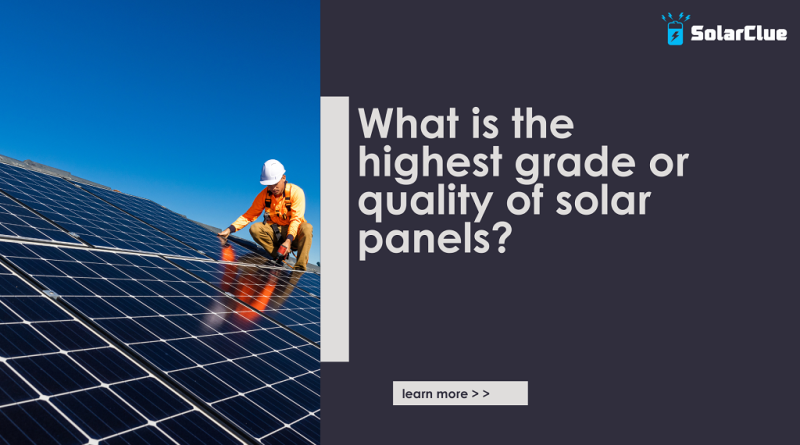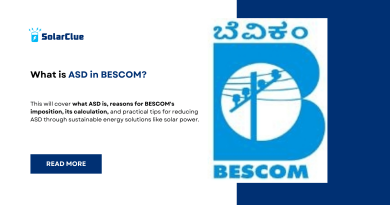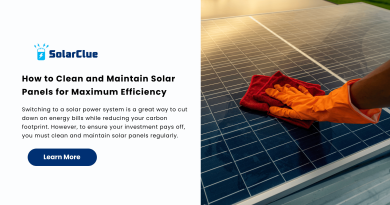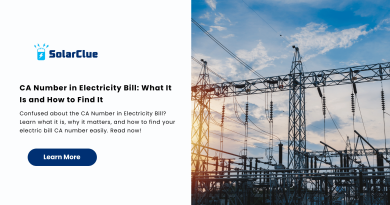What Is The Best Grade Or Quality Of Solar Panels
Table of Contents
Introduction
The global dynamism witnessed today is primarily characterized by a shift towards cleaner energy, and solar energy has become a significant part of that initiative. Solar panels are at the forefront of this environmentally-friendly transformation, harvesting solar energy directly from the sun and converting it into electricity. However, with the market swamped by various types and models, selecting a solar panel of the highest grade or quality may pose a challenge. This article aims to shed light on some key factors that determine the premium grade of solar panels, helping you make an informed decision when investing in solar energy technology.
What Is The Best Grade Or Quality Of Solar Panels
Understanding the Types of Solar Panels
Before delving into important elements that contribute to the superior quality of solar panels, it’s vital to understand the different types available. There are three primary types of solar panels: Monocrystalline, Polycrystalline, and Thin Film. Monocrystalline solar panels are made from single crystal structure offering high efficiency and sleek design, but comes at a higher price. Polycrystalline solar panels, made from fragments of silicon crystals, are less efficient but cheaper. Thin-Film solar panels offer the lowest efficiency but are the most cost-effective, aesthetically pleasing and flexible.
Efficiency and Performance
The efficiency of a solar panel indicates its ability to convert sunlight into usable electricity. Generally speaking, the higher this figure, the better the quality of the solar panel. Monocrystalline panels typically present the most efficiency, often surpassing 20%. Additionally, look for panels that perform efficiently under various conditions like lower light or high heat, rather than those merely excelling in optimal sunshine. A high-quality solar panel will deliver a consistent per watt output, irrespective of the external conditions.
Durability and Warranty
The durability and warranty of a solar panel also serve as significant indicators in assessing its quality. High-quality panels boast the ability to withstand environmental stressors such as hail, high wind, or snow loads, rendering them durable in diverse weather conditions. Moreover, these panels, typically manufactured using tempered glass and high-grade aluminum framing, come with extensive product and performance warranties. These warranties not only express the manufacturer’s confidence in their product but also guarantee a certain level of performance for up to 25-30 years.
Certifications
Certifications attached to various solar panels provide a robust benchmark to determine their quality. Certifications such as the international IEC 61215 certify that the panel satisfies certain requirements for design qualifications and type approvals. Similarly, the IEC 61730 certification ensures electrical and mechanical safety, while the UL 1703 certification guarantees safety under particular fire conditions. High-grade solar panels have passed these and more rigorous assessments, ensuring excellent performance standards.
Manufacturer Reputation
The reputation of the solar panel manufacturer adds credence to its quality. Established companies have a proven track record of reliability and durability and often have comprehensive warranties. Companies with a strong financial backing are more likely to honor warranties and have a long term commitment to their customers. Thus, investing in a solar panel from a reputable manufacturer is a prudent step towards quality assurance.
“What Is The Best Grade Or Quality Of Solar Panels “
Conclusion
In the quest towards sustainability through solar energy, it’s essential to select a quality-grade solar panel that provides robust performance, durability, and excellent efficiency. While these superior panels come at a higher price, they guarantee a long-term investment with high returns, setting you on an economically and environmentally responsible path. Ultimately, the best solar panel for you will depend on your specific requirements such as budget, geographical location, and available space. Keep these factors in mind, in addition to the aforementioned quality indicators, for making an informed and future-proof choice in solar energy technology.




